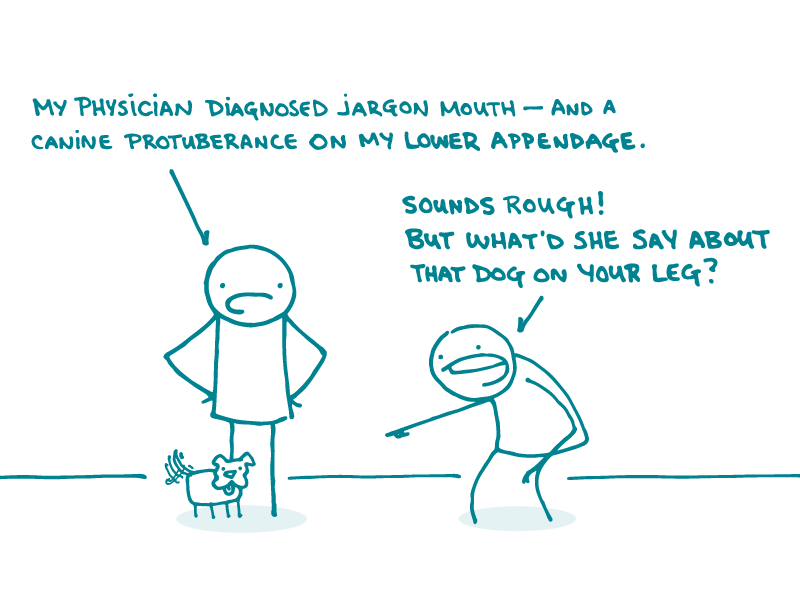
Google “diagnosis and prognosis” and you’ll find a whole bunch of webpages devoted to explaining the difference between these 2 words. And the difference is clear — diagnosis is what you have, and prognosis is how it will probably play out.
So why all the confusion, dear readers? Most of us only hear these words in a medical context. And that context may be scary! When someone’s getting a stressful health update, it’s no time to make them parse medical speak.
That’s why we say avoid the diagnosis-prognosis confusion altogether and skip ’em both.
For diagnosis, just tell people what they have.
- Instead of: He was diagnosed with jargon mouth disorder.
- Try: He found out he has type 2 jargon mouth.
- Instead of: Your diagnosis is dog leg.
- Try: You definitely have dog leg. Anyone can see there’s a dog stuck to your leg.
For prognosis, just tell people what to expect.
- Instead of: Here’s your prognosis for your chronic jargon mouth.
- Try: Here’s what may happen next with your jargon mouth if you don’t change your arcane ways.
- Instead of: The prognosis for people with dog leg is very good.
- Try: Your life with dog leg won’t be so bad — you’ll always have a friend, and your left calf will never get cold.
(Okay, so maybe don’t use those exact words — but you get the idea.)
The bottom line: The “prognosis” for “diagnosis” is confusion — so just tell people exactly what they need to know.
Browse recent posts